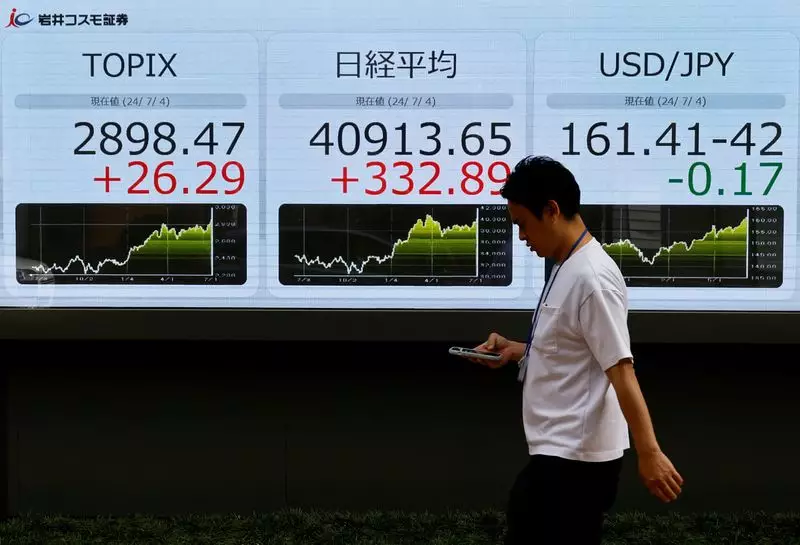The oil market experienced a period of instability as traders shifted their focus from geopolitical tensions in the Middle East and Venezuela to concerns over softening demand in China. This shift in attention led to a decline in oil prices, with Brent crude futures hitting seven-week lows at $79.36. The impact of weakening Chinese demand on commodities weighed heavily on traders, overshadowing other factors affecting the oil market.
Stock Market Reactions
The stock market reacted cautiously to the upcoming central bank meetings in the U.S. and Japan, as well as a wave of major corporate earnings reports. The S&P 500 steadied after a two-week downturn, with futures ticking 0.4% lower in early Asia trading. Japan’s Nikkei, which experienced a significant drop of nearly 6% the previous week, was also 0.7% lower in morning trade. This uncertainty in the stock market reflected the apprehension surrounding the decisions that would be made by the central banks and the implications for interest rates and monetary policy.
Currency markets remained relatively subdued as traders awaited the outcomes of the central bank meetings. The dollar and yen traded within narrow ranges, consolidating after recent breakout moves. The euro stood at $1.0851, while the Australian dollar faced downward pressure due to falling commodity prices, trading at $0.6536. The yen, which had rebounded significantly from a 38-year low, hovered at 153.95 per dollar. The impending central bank decisions were expected to have a significant impact on currency markets, potentially altering the trajectory of major currencies.
Market participants were anticipating the policy decisions of the Federal Reserve and the Bank of Japan, with expectations of a dovish tone from U.S. policymakers. While a U.S. rate cut was not expected during the current meeting, markets had fully priced in a 25-basis point reduction for September. In Japan, there was a broader range of potential outcomes, including a 10-basis point rate hike, as well as plans from the Bank of Japan to exit its extensive bond-buying program. The uncertainty surrounding these decisions contributed to a sense of unease in the markets, prompting traders to review their positions and exposures.
The upcoming central bank meetings in the U.S., Japan, and the Bank of England were poised to shape the future trajectory of global financial markets. With potential changes in interest rates, monetary policy, and economic outlooks, investors were closely monitoring the outcomes of these meetings. Additionally, economic data releases, such as Australian inflation data and the possibility of a rate cut by the Bank of England, added further complexity to an already uncertain market environment. The intersection of these events created a sense of anticipation and apprehension among market participants, highlighting the interconnectedness of global financial markets and the impact of central bank decisions on asset prices.

